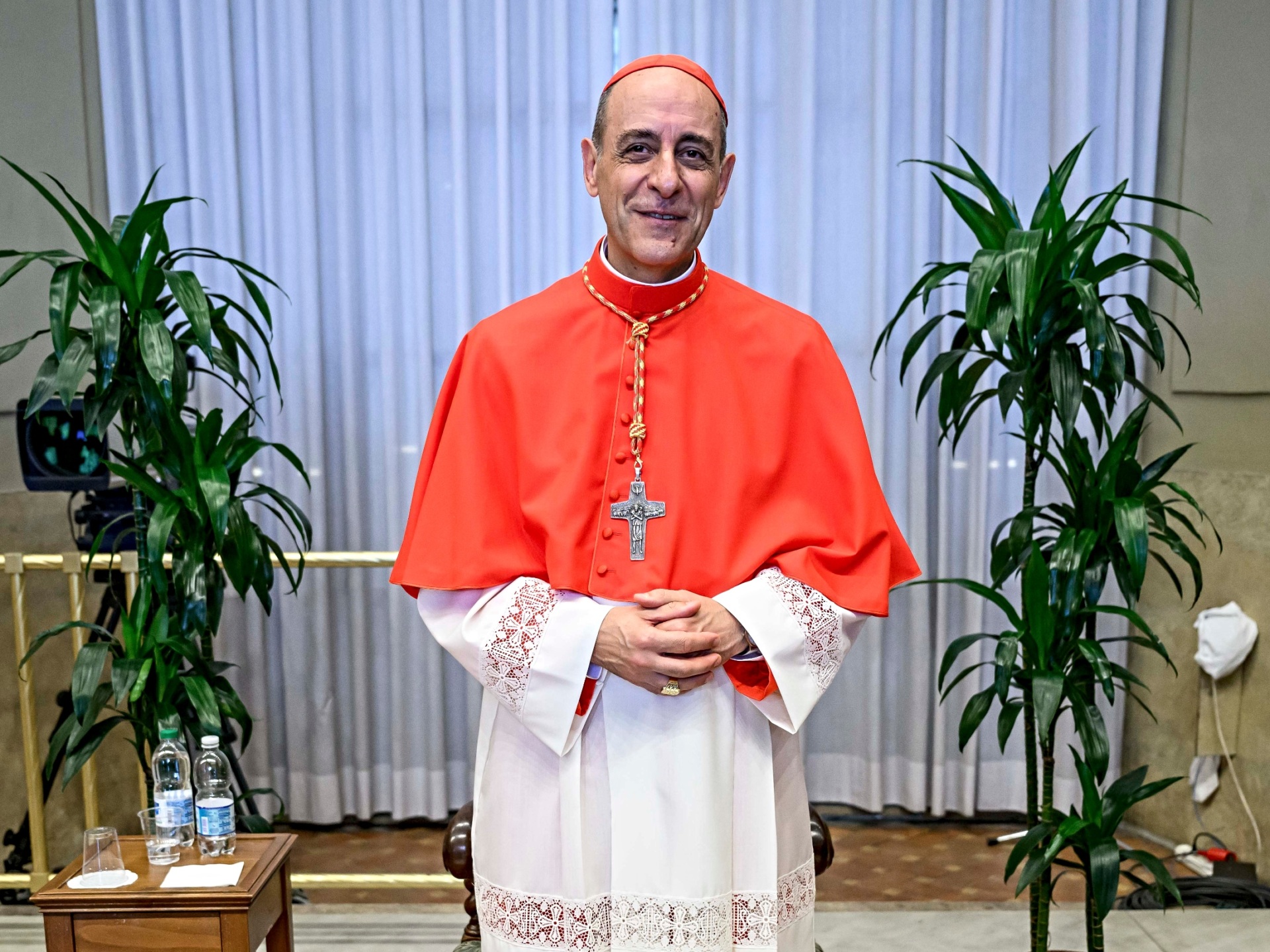ROME — Writings from the Vatican’s controversial doctrinal czar exploring intimate details of male and female orgasm has been dubbed the last straw for his meteoric but scandal-ridden career.
Víctor Manuel “Tucho” Fernández, a close personal friend and ghostwriter for Pope Francis, whom the pontiff called to Rome to lead the Vatican’s powerful doctrinal office, elevating him to the rank of cardinal, has provoked a veritable ecclesial earthquake with the recent discovery and translation of a graphic sexual text comparing orgasm to mystical union with God.
“Let’s not forget that women have a rich venous plexus around the vagina, which maintains a good blood flow after orgasm,” Fernández wrote in his 1998 book Mystical Passion: Spirituality and Sensuality. “That’s why she is usually insatiable. She needs to release the pelvic congestion, and when this does not happen, after orgasm she may want more.”
“The woman requires more time, more dedication. She needs the man to give her something extra after he has achieved his own satisfaction,” he added.
Fernández said this week that he had cancelled Mystical Passion not long after it was published and “never allowed it to be reprinted.”
Mystical Passion made sense at the time but it is a book “that I certainly would not write now,” he told Crux, an online Catholic news outlet.
What many observers have found most troubling about the book is not its prurient exploration into the nitty gritty of human orgasm — as odd as it may be considering its authorship — but rather an entire chapter recounting conversations with a 16-year-old girl about her erotic visions of Jesus.

Pope Francis appoints as new cardinal Prefect of the Dicastery for the Doctrine of the Faith, Víctor Manuel Fernández during the Ordinary Public Consistory for the Creation of new Cardinal at St. Peter’s Square on September 30, 2023 in Vatican City, Vatican. (Photo by Franco Origlia/Getty Images)
If these descriptions were indeed reported to him by this girl, they would seem to exceed any boundaries of prudence and propriety; if they were fabricated by him, they would seem to suggest thoroughly questionable imaginings into the sexual-spiritual life of a young girl.
Moral theologians have also taken issue with Fernández’ apparent justification of objectively evil actions as somehow compatible with God’s grace.
Experience God’s love “does not mean, for example, that a homosexual will necessarily stop being homosexual,” he wrote.
“Let us remember that God’s grace can coexist with weaknesses and even with sins, when there is a very strong conditioning,” he added. In those cases, the person can do things that are objectively sinful, without being guilty, and without losing the grace of God or the experience of his love.”
Curiously, the prelate also cites “a venerable Egyptian theologian of the 15th century” named Al Sonuouti, in giving praise to God: “Praise be to Allah, who establishes penises as hard and straight as spears to wage war on vaginas.”
This is not the only publication written by the Argentinean cardinal to raise eyebrows. Fernández was also the author of a surprising text titled Heal Me With Your Mouth: The Art of Kissing, which he published in 1995 as a 33-year-old priest.
“I want to clarify that this book was not written so much based on my own experience, but based on the lives of people who kiss,” Fernández wrote in the introduction. “In these pages I want to synthesize the popular feeling, what people feel when they think of a kiss, what mortals experience when they kiss.”
“So, trying to synthesize the immense richness of life, these pages emerged in favor of kissing,” he wrote. “I hope that they help you kiss better, that they motivate you to release the best of your being in a kiss.”
In his research on kissing, Fernández said he consulted about 1000 people “on the street.”
Adalberto Mendez, lawyer from Mexico and member of Eca Global, speaks during a Vatican protest against the election of Archbishop Víctor Manuel Fernández as head of the Congregation for the Doctrine of the Faith (CDF) on September 28, 2023 in Rome, Italy. (Simone Padovani/Getty)
“I went to bars, colleges, businesses, in order to ask young people about what they knew to say about kissing,” he wrote. “I collected varied opinions about what a kiss means for them, about the different ways of kissing.”
“The penetrating kiss is when you suck and slurp with the lips. The penetrating kiss is when you stick in your tongue. Watch out for teeth,” he wrote, citing one of his interlocutors.
Some Vatican watchers have wondered aloud whether Pope Francis was unaware of Fernández’ controversial writings when he named him head of the Vatican’s doctrinal office — which would seem a gross lack of due diligence — or whether he knew of them and named him anyway.
More recently, Cardinal Fernández caused a furor when he released a declaration reversing a 2021 ban on blessing gay couples, which had been issued by the same Dicastery of the Doctrine of the Faith of which he is now the head.
Nonetheless, Vatican voices are beginning to describe Mystical Passion as the straw that breaks the camel’s back.
“I’m going to say that Cardinal Fernandez’s resignation is now inevitable,” writes Spectator associate editor Damian Thompson. “Looks like we have arrived at the final crisis of this pontificate.”
